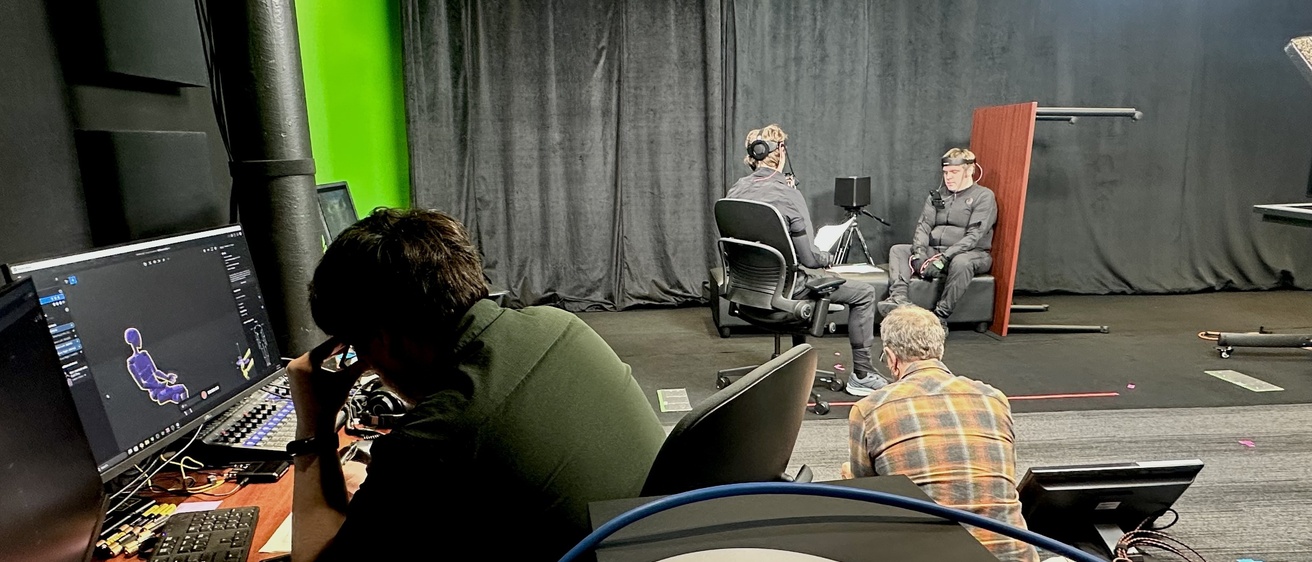C.A.R.E.S. teaches new Hawkeyes how to recognize and respond to mental health challenges
When University of Iowa staff began searching for a replacement for an existing mental health awareness program, they quickly realized that no available option fit the unique culture and needs of Iowa students. Rather than adopt an outside product, a team with representatives from across campus chose to design its own interactive, evidence-based program.
The result is C.A.R.E.S.: Connect, Acknowledge, Respond, Engage, and Support – A Mental Health and Well-Being Series for Students, a new interactive learning experience created specifically for undergraduates at Iowa. Completed in September 2025, the homegrown program replaces the former Kognito suicide-prevention module.
“We started this project 18 months ago with the goal of finding a new vendor. As we looked at existing programs, it became clear that we already had the expertise on campus to do this ourselves in a way that would have the greatest impact on our students.”
- Sarah Hansen, vice president for student life
Development of C.A.R.E.S. was led by a coalition with members from the Division of Student Life, Student Wellness, University Counseling Service, Orientation Services, Scanlan Center for School Mental Health, and Distance and Online Education. The team reviewed multiple options before concluding that a custom-built solution, leveraging the university’s strengths in counseling psychology, instructional design, and educational technology, would best serve Iowa students.
The finished product is an engaging, scenario-based module embedded within CSI:1600 Success at Iowa, an online course required for all new first-year and transfer students. Through realistic simulations, C.A.R.E.S. helps students learn how to recognize signs of distress in themselves and others, offer support, and refer peers to the University Counseling Service for help.
Andy Kutcher and Jill Trumm, the course instructor and course supervisor for Success at Iowa, played large roles in creating the script and managing the project. They collaborated with Michael Fletcher, director of University Counseling Service, and Barry Schreier, director of higher education programming in the Scanlan Center for School Mental Health and clinical professor of counseling psychology in the College of Education, to craft authentic dialogue and responses for the simulation. Schreier also serves as the module’s narrator, guiding students through each stage of the training.
“C.A.R.E.S. offers students the language and confidence to lean-in and have meaningful conversations and build a culture of care across campus," says Schreier. "The virtual environment gives students an opportunity to practice, which is critical to learning how to provide support to those in need.”
Student actors helped bring the program to life using motion-capture suits to animate the interactive experience. Susan Bailey, director of instructional design, and Mark Hamilton, director of media, from Distance and Online Education managed the branching storylines, built the virtual world, and completed the final animations for the videos.
Early feedback from students has been overwhelmingly positive, with participants indicating that the training does a good job introducing the topic of mental health to students and explaining where to go if they need help.
“I think it was really needed, it was a good thing to add, and it’s good to know that the university cares about my mental health and that I can talk to anyone about my mental health.”
- Feedback from a student who completed the C.A.R.E.S. module
“C.A.R.E.S. is another example of the university’s commitment to student well-being and success,” says Hansen. “This whole process really exemplifies how much we can accomplish through the power of collaboration.”
